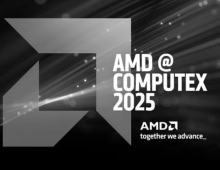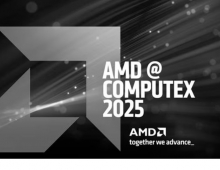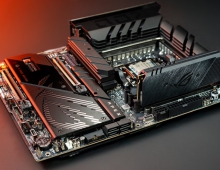
AMD Says Bapco's Sysmark Is Not Reliable For Benchmarking
AMD accuses rival Intel and BAPCo, the benchmarking consortium, of cheating in its Sysmark benchmark, saying that it should not be used in order to evaluate the performacne of a PC system. In a video posted Thursday on Youtube, John Hampton, director of AMD’s client computing products, ran Sysmark 2014. on two "similar" laptops equipped with different CPUs. The Core i5 laptop scored about 987, while the AMD FX laptop scored 659.
Then he ran the same laptop in Futuremark’s PCMark 8 Work Accelerated workload. Again the AMD FX laptop was about 7 percent slower.
Another benchmark that used tasks related to Microsoft Office showed that the Core i5 system finished in 61 seconds, while the FX chip finished in 64 seconds.
"What we concluded is that Sysmark does not use realistic every day workloads," Hampton said.
"The reason thousands of customers trust BAPCo benchmarks is because we are an industry consortium that focuses on the performance of applications that people use on a daily basis," a spokesman for the consortium said.
BAPCo members include Acer, ARCIntuition, ChinaByte, CNET, Compal, Dell, Hewlett-Packard, Hitachi, Intel, LC Future Center, Lenovo, Microsoft, Western Digital, Wistron, Quanta Computer, Samsung, Sony, Toshiba, Zol and others.
It is not a secret that BAPCo 2014 1.5 focuses mostly on CPU performance, and not the GPU performance of a processor. It uses off-the-shelf applications such as Photoshop, Premiere, Word, and Excel. It tasks the apps with a workload and then measures only the response time to the task.
And since AMD has been promoting its superiority of its Radeon cores packed into its CPUs compared to Intel's built-in graphics cores, the BAPCo benchmark is not the right tool for the company's marketing and promoting efforts.
AMD essentially tells users not characterize the overall performance of an AMD system based on solely on the Sysmark benchmark.
In fact, one of the tests AMD uses to show it’s behind Intel, but not that far behind, is PCMark 8 Work Accelerated. The test has two options: One uses OpenCL, which taps the GPU, while the other relies on just the CPU.





















